News
What happens when you challenge Sydney’s brightest young future architects to come up with solutions to the global loneliness crisis?
We found out this month in the latest round of our student design competition, which saw eight teams from the University of New South Wales, the University of Sydney and the University of Technology Sydney designing components of place to help combat loneliness and improve social connections in cities.
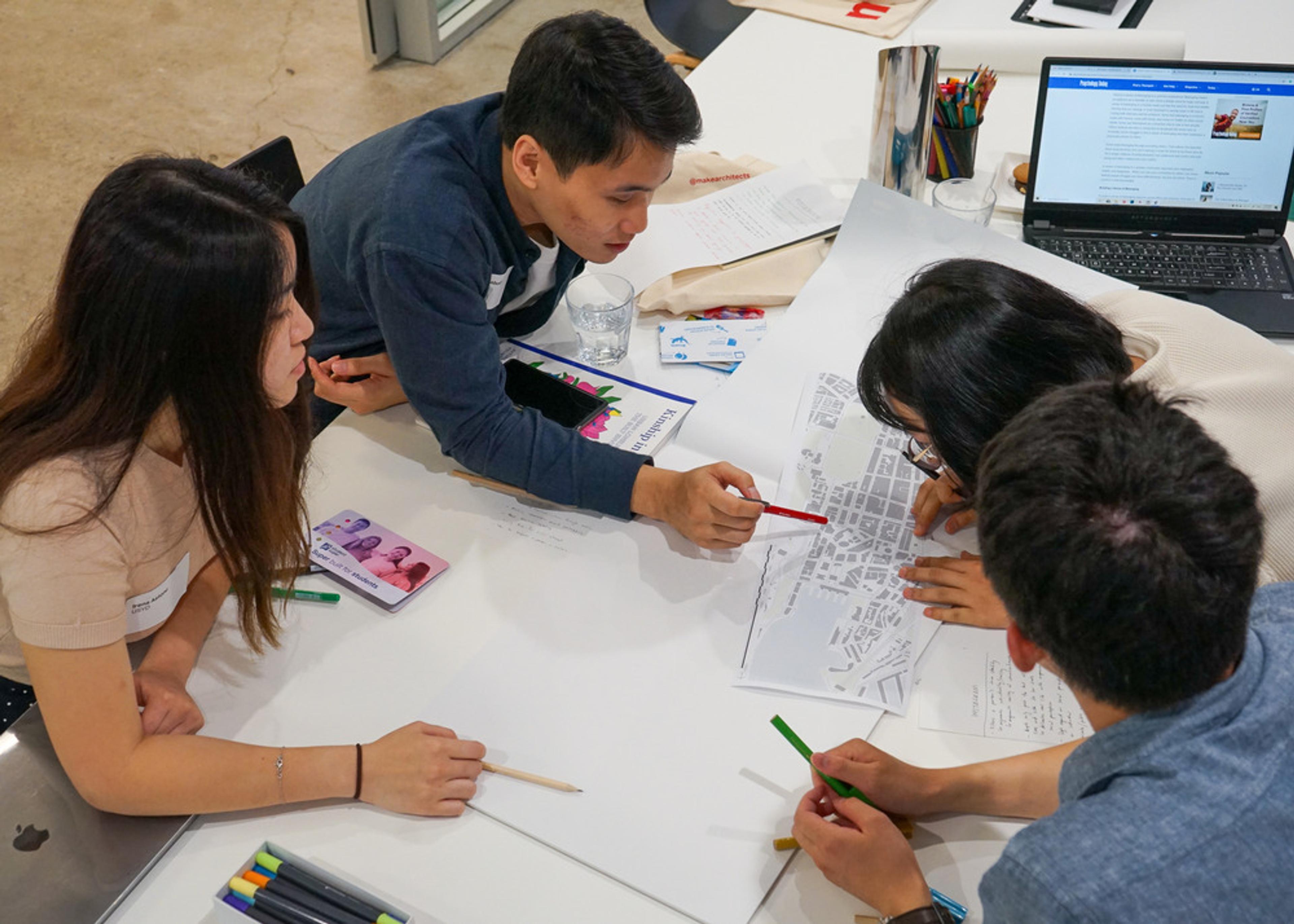
The competition kicked off at the Make Architects studio in February. Students spent a day working on ideas for their entries, with support and mentoring from Make’s architects. They returned to the studio in early March having spent several weeks finalising their designs, to present their concepts to our judging panel of industry experts:
- Abbie Galvin, Government Architect NSW
- Natalie Slessor, Lendlease
- Elizabeth Farrelly, Writer
- Simon Lincoln, Make Architects
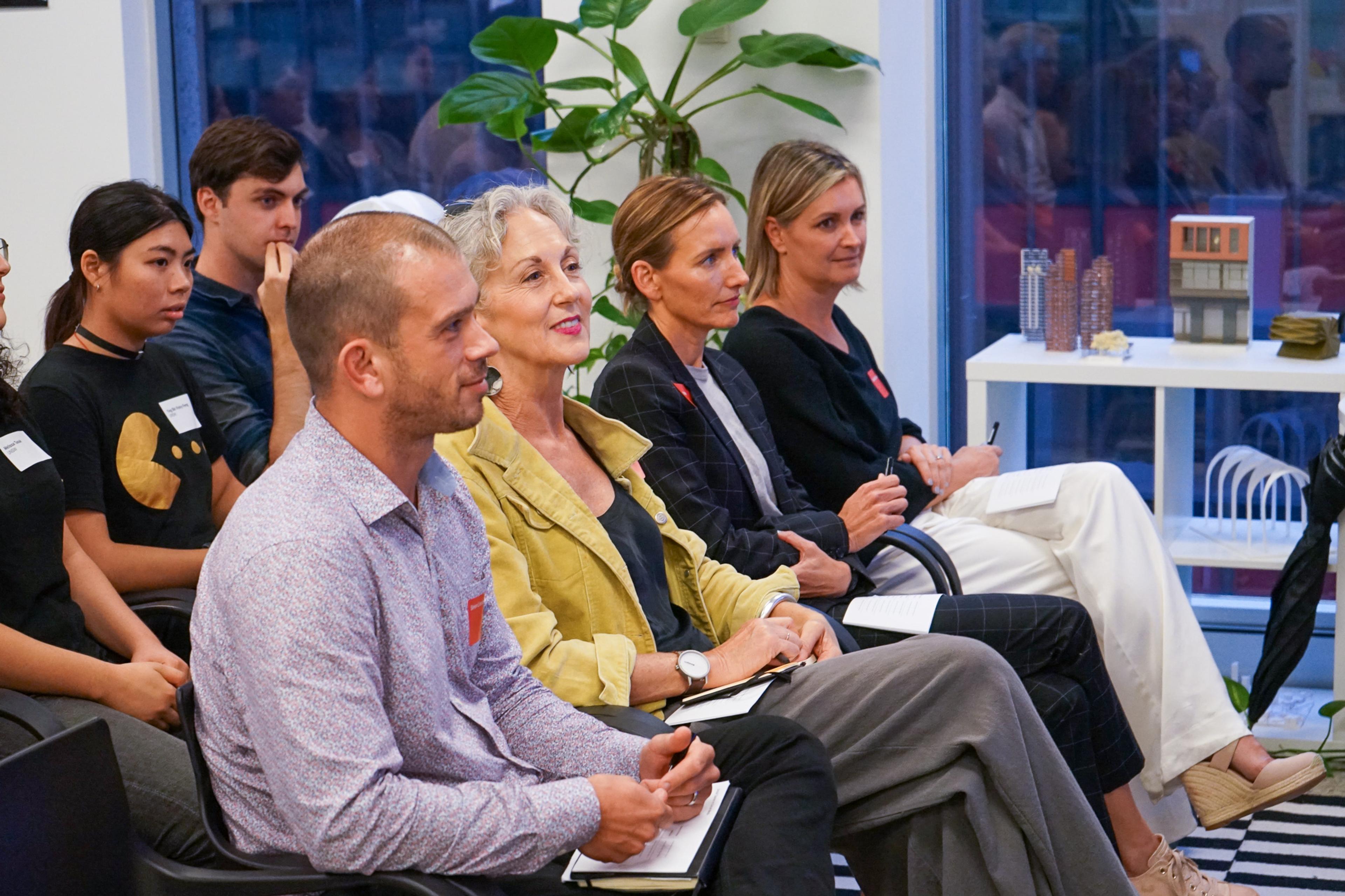
The result was a collection of thought-provoking and novel ideas with the potential for real-world application. As Make architect and judge Simon Lincoln stated:
“The students explored some evocative ideas poised to solve urban loneliness. The solutions proposed could prove successful almost anywhere in the rapidly modernising world.”
The winner
The winning team from the University of Sydney (USYD) impressed judges with their entry, ‘InTransit’. It proposes moving away from Sydney’s car-centric transport model and towards a fusion of transport and architecture that provides unexpected communal spaces in public transport hubs.
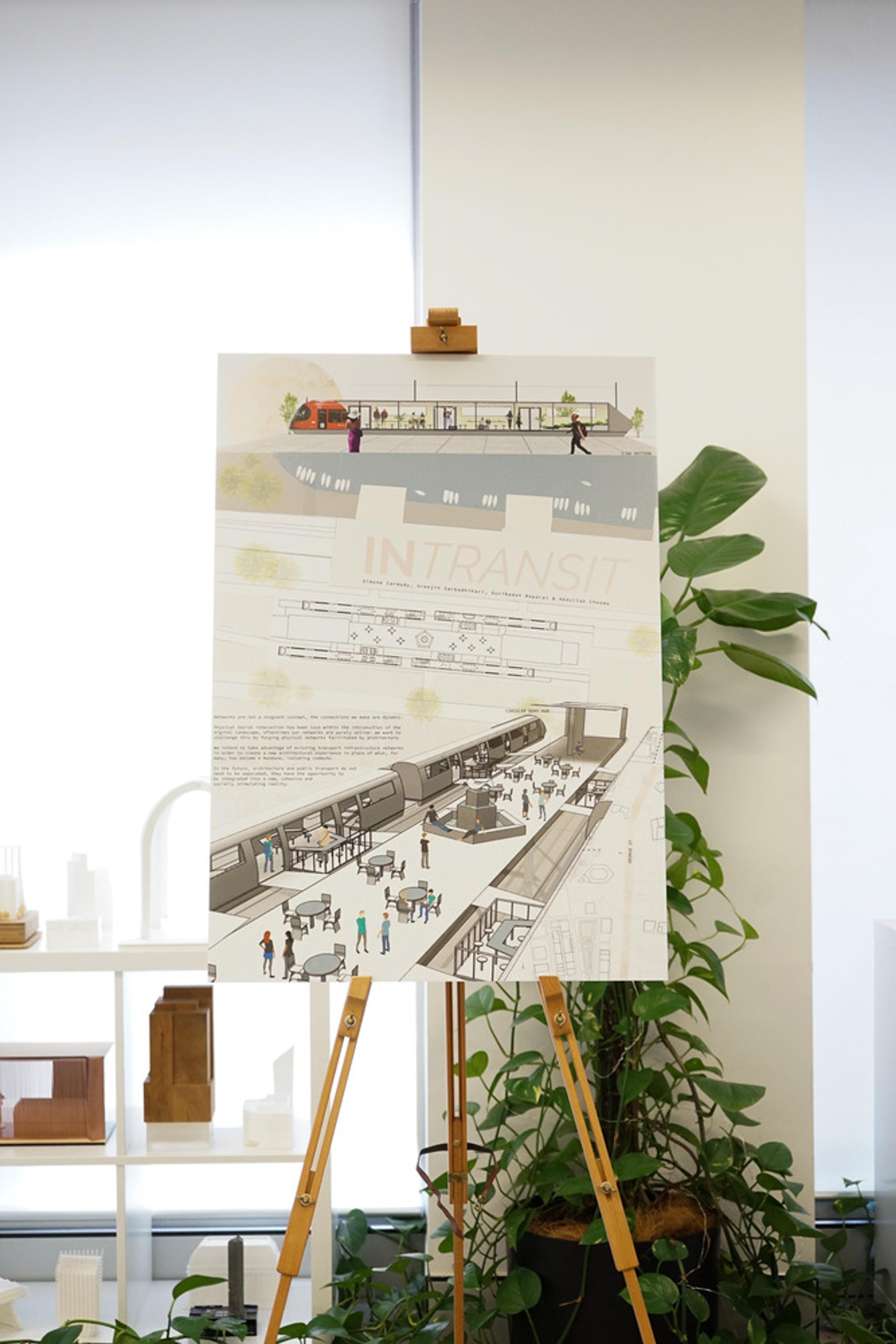
The design integrates architecture and transport infrastructure to create spaces that are ‘progressive, fluent, interactive, personal and social’.
Judge Elizabeth Farrelly highlighted the importance of transport in designing out loneliness: ‘it makes it especially pressing that we prioritise our cities’ spatial networks, rather than the built objects that define them’.
Team member Simone Carmody explains how the idea could be implemented:
“Refurbished carriages sporting different programs like cafes, gardens, co-working spaces seek to facilitate social interaction and encourage the commuter to engage in the built environment rather than their screens. While not in use, these carriages assemble, opening their doors in a “hub” that blends with the city to create a new urban space open to all.”
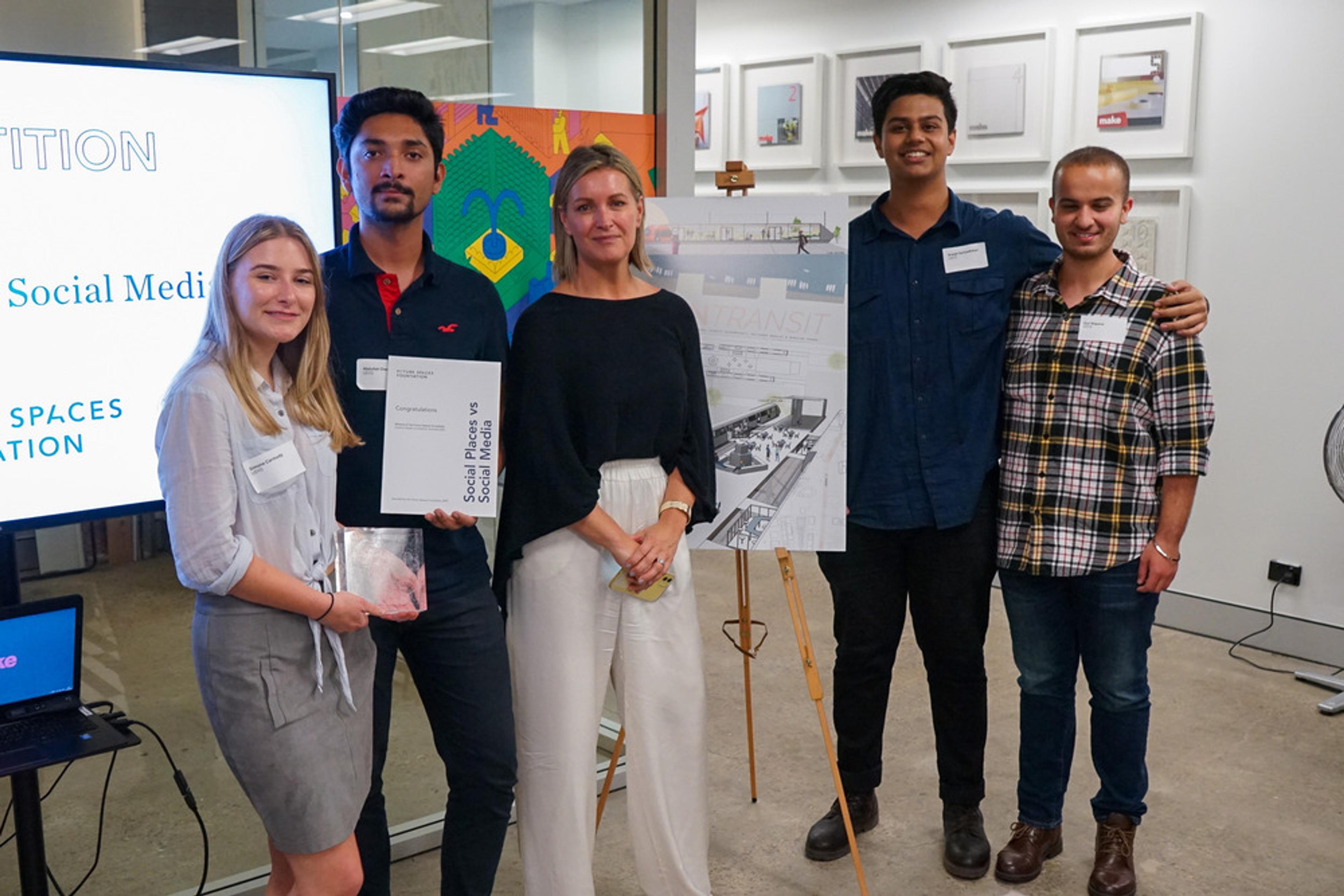
Judge Natalie Slessor commented:
“By riffing off the familiarity and pervasiveness of public transport and then layering up social activation themes, the idea came to life in the most compelling way to fulfil the brief.”
Congratulations to the team who will receive a AUD$2,000 prize and publication in an official Foundation compendium: Abdullah Cheema, Guribadat Boparai, Sreejit Sarbadhikari and Simone Carmody.
Runners up
Also from USYD, the runners up came a close second with their entry entitled ‘SEED’. The SEED project provides a variety of experiential and learning pods which act as the catalyst for people in the city to break away from the rigidity of their day to day routines. It emphasises learning and social interaction, deconstructing the boundaries and groups that people tend to stick to.
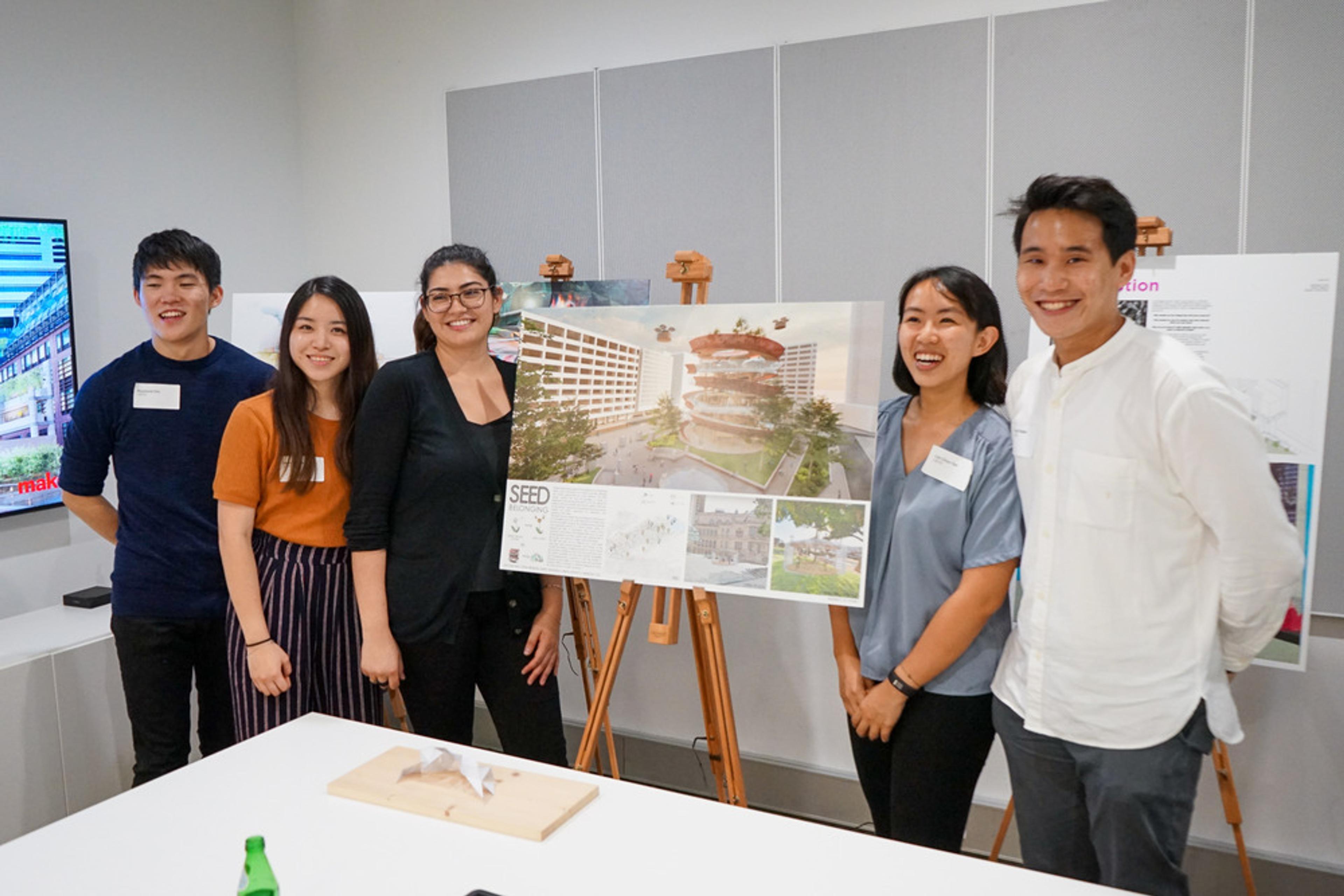
Well done to the team: Lim Chun Yan, Dylan Tirtabudi, Irena Astono, Ashley Valenzuela, Raymond Cho.
Our thanks to all of the students, universities, judges and Make architects involved in the competition. The loneliness crisis is one that affects millions of people around the world. As judge Abbie Galvin asserts:
“Progression and sophistication as a society has led us to an increasing focus on the individual. As our cities densify this approach needs to shift toward one that is more community centric.”
Our student design competition seeks to find out how placemakers of the future can create diverse and vital spaces that encourage face-to-face social interaction and a more community centric approach. We were incredibly heartened by the quality of the proposals that succeeded in doing just that: redressing the balance towards happier, healthier and more connected cities.
For any queries or requests for comment/interview, please get in touch here.
Showing ... of 31 articles